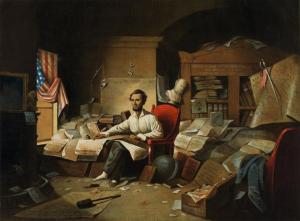A Day With William Shakespeare
Nonfiction, Religion & Spirituality, New Age, History, Fiction & Literature| Author: | Maurice Clare | ISBN: | 9781465586643 |
| Publisher: | Library of Alexandria | Publication: | March 8, 2015 |
| Imprint: | Language: | English |
| Author: | Maurice Clare |
| ISBN: | 9781465586643 |
| Publisher: | Library of Alexandria |
| Publication: | March 8, 2015 |
| Imprint: | |
| Language: | English |
IT was early on a bright June morning of the year 1599. The household of Christopher Mountjoy, the wig-maker, at the corner of Silver Street in Cripplegate, was already up and astir. Mountjoy, his wife and daughter, and his apprentice, Stephen Bellott, were each refreshing themselves with a hasty mouthful—one could not term it breakfast—before beginning their day's work. For town wig-makers were busy folk, then as now. Every fashionable dame wore "transformations," and some noble ladies, like the late Queen of Scots and—breathe it low—the great Elizabeth herself, changed the colour of their tresses every day. Breakfast, in 1599, was a rite "more honoured in the breach than in the observance." Most people, having supped with exceeding heartiness the previous night, ignored breakfast altogether: especially as dinner would occur some time between 10 and 12 a.m. Those who could not go long without food had no idea of a regular sit-down meal during that precious morning hour which "has a piece of gold in its mouth." They contented themselves with beaten-up eggs in muscadel wine, as now the Mountjoy family; who, being of French origin, boggled somewhat at the only alternative—a very English one—small ale and bread-and-butter.
IT was early on a bright June morning of the year 1599. The household of Christopher Mountjoy, the wig-maker, at the corner of Silver Street in Cripplegate, was already up and astir. Mountjoy, his wife and daughter, and his apprentice, Stephen Bellott, were each refreshing themselves with a hasty mouthful—one could not term it breakfast—before beginning their day's work. For town wig-makers were busy folk, then as now. Every fashionable dame wore "transformations," and some noble ladies, like the late Queen of Scots and—breathe it low—the great Elizabeth herself, changed the colour of their tresses every day. Breakfast, in 1599, was a rite "more honoured in the breach than in the observance." Most people, having supped with exceeding heartiness the previous night, ignored breakfast altogether: especially as dinner would occur some time between 10 and 12 a.m. Those who could not go long without food had no idea of a regular sit-down meal during that precious morning hour which "has a piece of gold in its mouth." They contented themselves with beaten-up eggs in muscadel wine, as now the Mountjoy family; who, being of French origin, boggled somewhat at the only alternative—a very English one—small ale and bread-and-butter.















